Fair. Ecological. Healthy for people and the environment.
Organic cotton without compromise
Cotton has been used for clothing for thousands of years. Today, it is one of the most widely used natural fibers in the world—no wonder, since it is available almost everywhere and has many beneficial properties.
Our clothing is made entirely from organic cotton – from the fabric to the sewing thread.
Synthetics are not an option for us. Even if that means taking the more difficult route more often – that's exactly what makes the difference for us.

ONE FIBER – MANY GOOD SIDES
- Organic cotton is skin-friendly, breathable, absorbent and temperature-regulating
- It is easy to care for and washable
- The fibers are soft, but at the same time strong and durable
- Unlike synthetic fibers such as polyester, cotton does not release microplastics when washed
Cotton also offers numerous advantages when it comes to processing:
- Thanks to its spinnability and fiber structure, cotton can be processed into a variety of knitted and woven fabrics – from airy and light to dense, robust or supple.
- It can be dyed and printed well
There are many good reasons to make and wear clothing and other textiles made of cotton. This is why this fluffy fiber is in demand worldwide and is produced in over 75 countries.
The problem: Almost all cotton harvested globally comes from conventional farming. This is often associated with high environmental impacts and social injustice. For example, genetically modified cotton plants are used in the USA and other countries of origin. In China, considered the world's largest cotton producer, numerous credible reports indicate that many forced laborers work on cotton farms.
We are taking a different path – and for more than 10 years we have been committed to actively shaping and driving positive change in the clothing industry: consistently ecological and uncompromisingly fair .
100% organic cotton
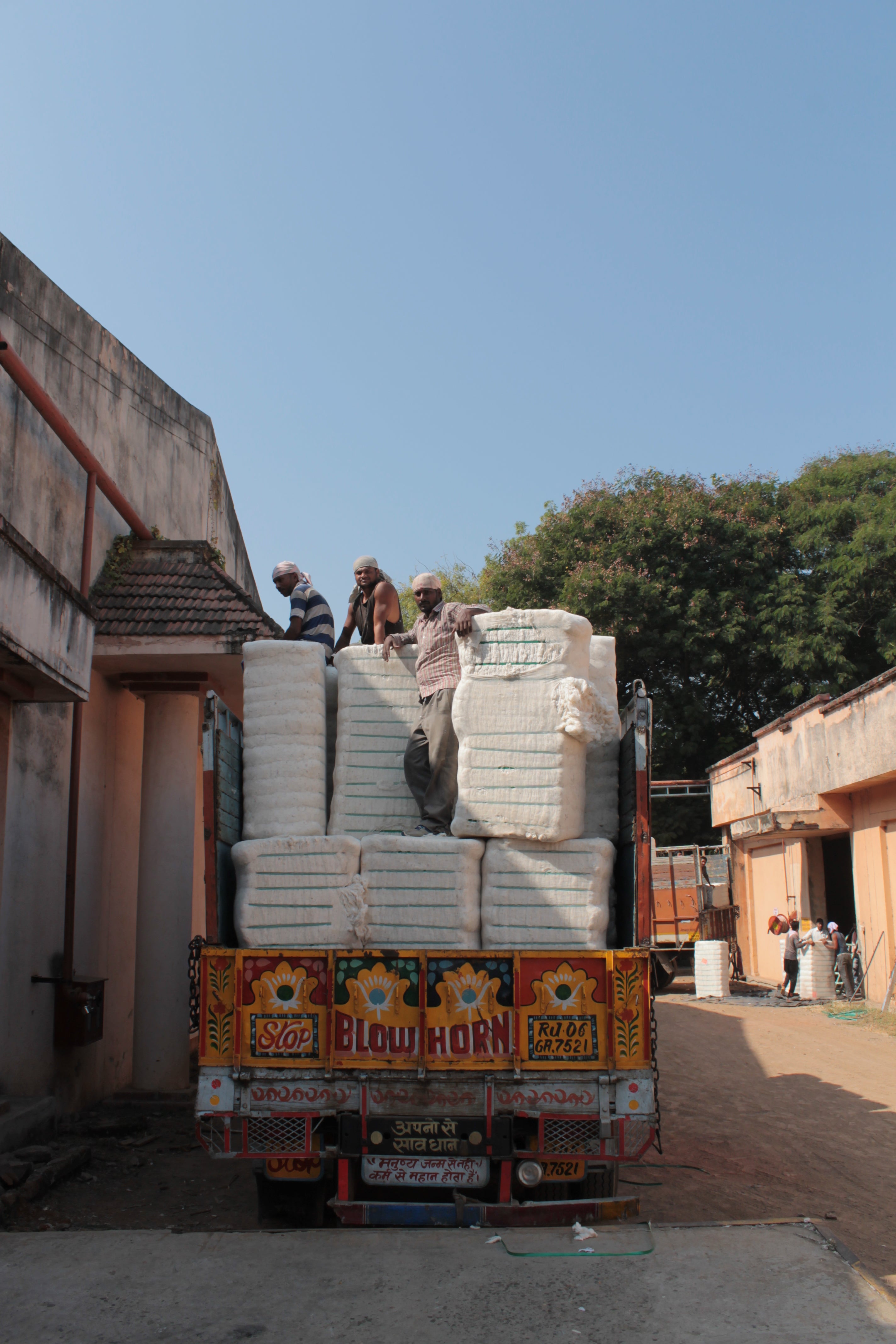
ACT TOGETHER: WEAR YOUR VALUES!
Only cotton that is produced fairly and ecologically is truly sustainable. You can rely on this 100% at MELA. We use 100% Fairtrade-certified organic cotton, which we source from selected partners in India. This allows us to guarantee the highest possible standards for our products, both ecologically and socially. Because every fiber counts when we want to design clothing responsibly. Incidentally, only about 2% of the cotton produced worldwide is organically grown.
But why India?
India has been inextricably linked to cotton cultivation for millennia. A rich tradition that remains an important part of India's "cotton DNA" and is now combined with innovative, sustainable principles. Furthermore, India is the world's largest producer of organic cotton, accounting for around 38%*.
That's why we decided from the outset to work exclusively with selected Indian farms and producers who, like MELA, are consistently committed to sustainability – and are open to changes that contribute to positive ecological and social change in the textile industry – and thus in the world.
At the same time, a large portion of the added value remains in the country, while the direct delivery of products to Germany means the textile supply chain has significantly fewer stops than with many other manufacturers. This also benefits the environment.
For this reason, each of our organic cotton products is much more than just a beautiful piece of clothing: it is a statement of responsibility, quality, and sustainability—toward nature, the producers, and our customers.
*Textile Exchange, 2022: Organic Cotton Market Report

Transparent. Certified. Fair.
For us, sustainability is more than just a promise: It's the foundation of everything we do – and has been since day one. That's why we only use cotton certified according to the Fairtrade Cotton Standard for our products, which meets the highest sustainability criteria for natural textiles.
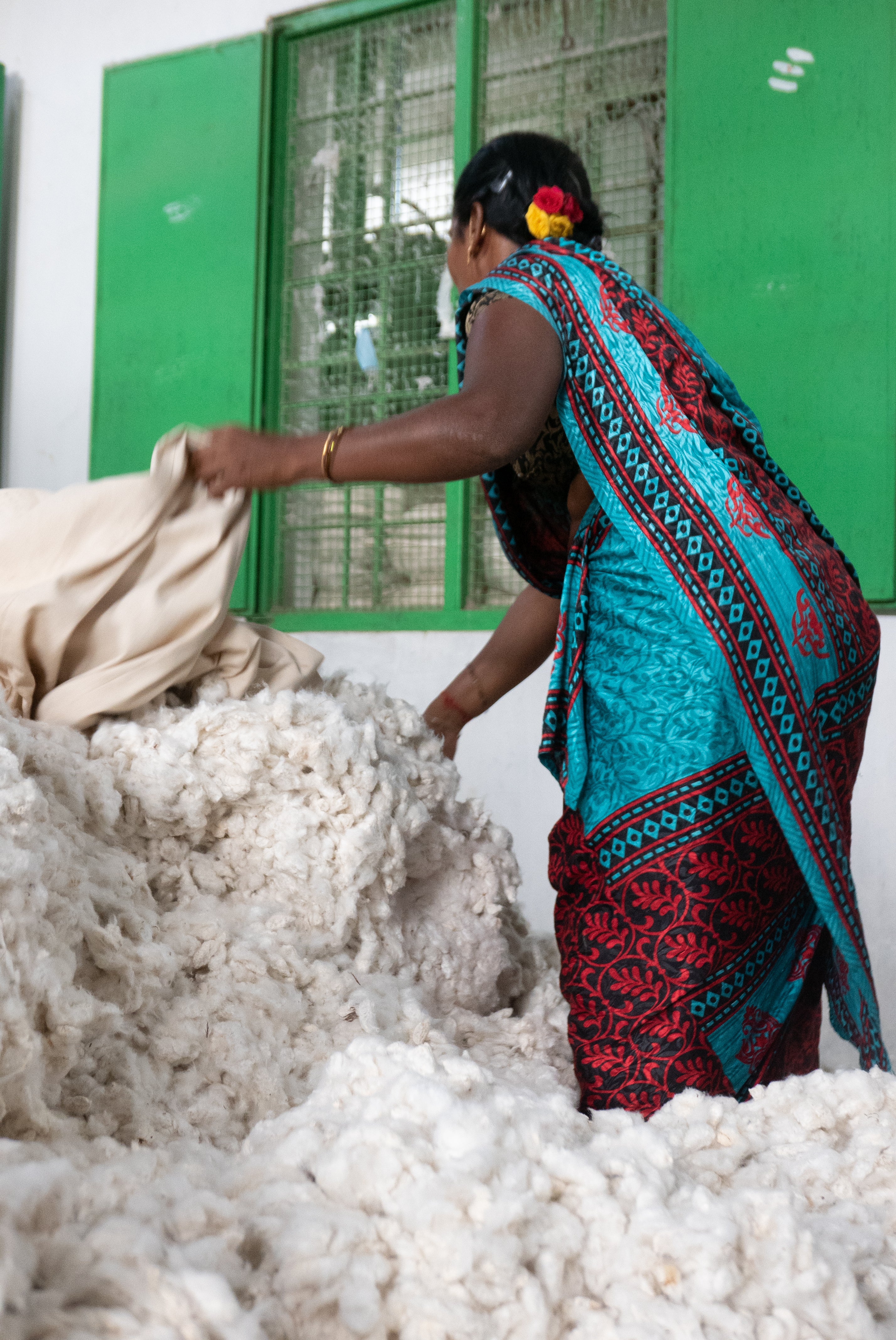
Three standards in processing
All products are also certified according to GOTS and the Green Button. All three certifications pursue a common goal: to ensure the highest ecological and social standards throughout the entire textile supply chain. They address different points in the supply chain and thus complement each other perfectly. Fairtrade, for example, focuses on social justice and fair pay in the farms. GOTS focuses on compliance with strict ecological and social criteria throughout the entire supply chain, paying particular attention to the further processing of the cotton.
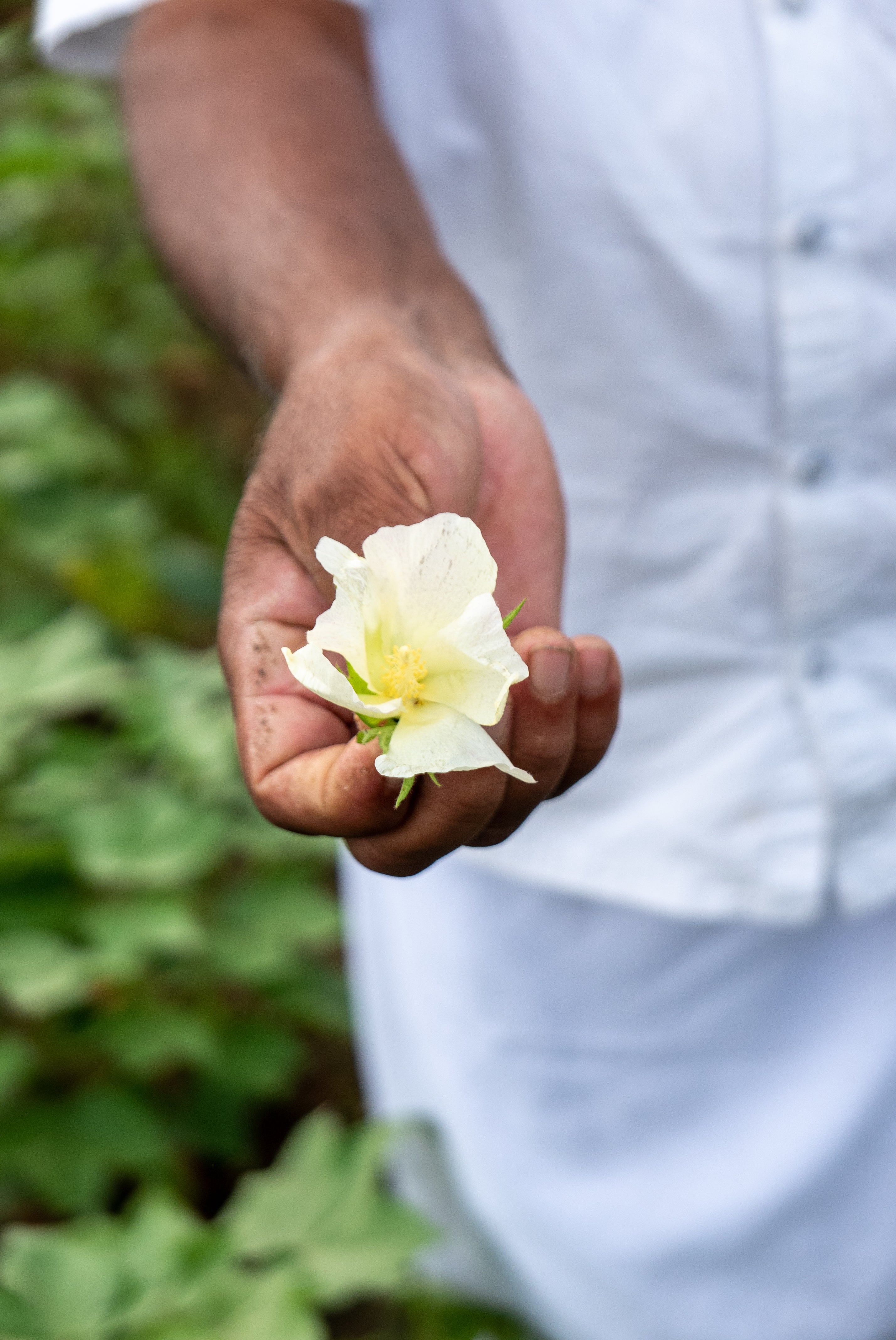
What does “organically grown” mean?
Our organic cotton comes from certified organic farming – and that makes a crucial difference: Instead of synthetic pesticides or fertilizers, we use natural methods that protect the soil and maintain ecological balance. The use of genetically modified organisms is also consistently excluded.
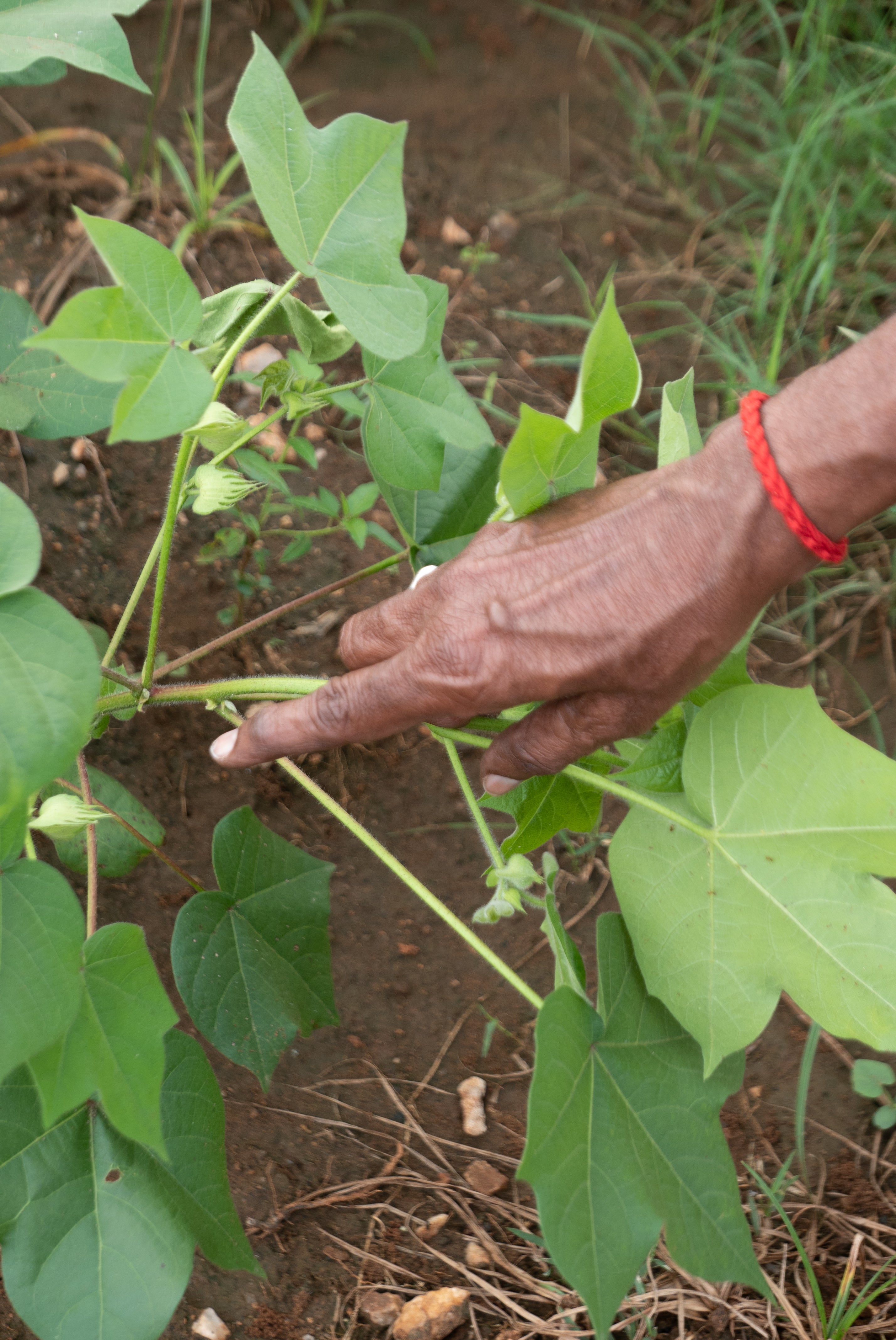
Natural crop rotation
By rotating the crop varieties cultivated—known as crop rotation—soil fertility is maintained and pests are naturally prevented. Organic farming also scores points in terms of water conservation: Since no harmful chemicals are used, no residues enter the soil or groundwater.
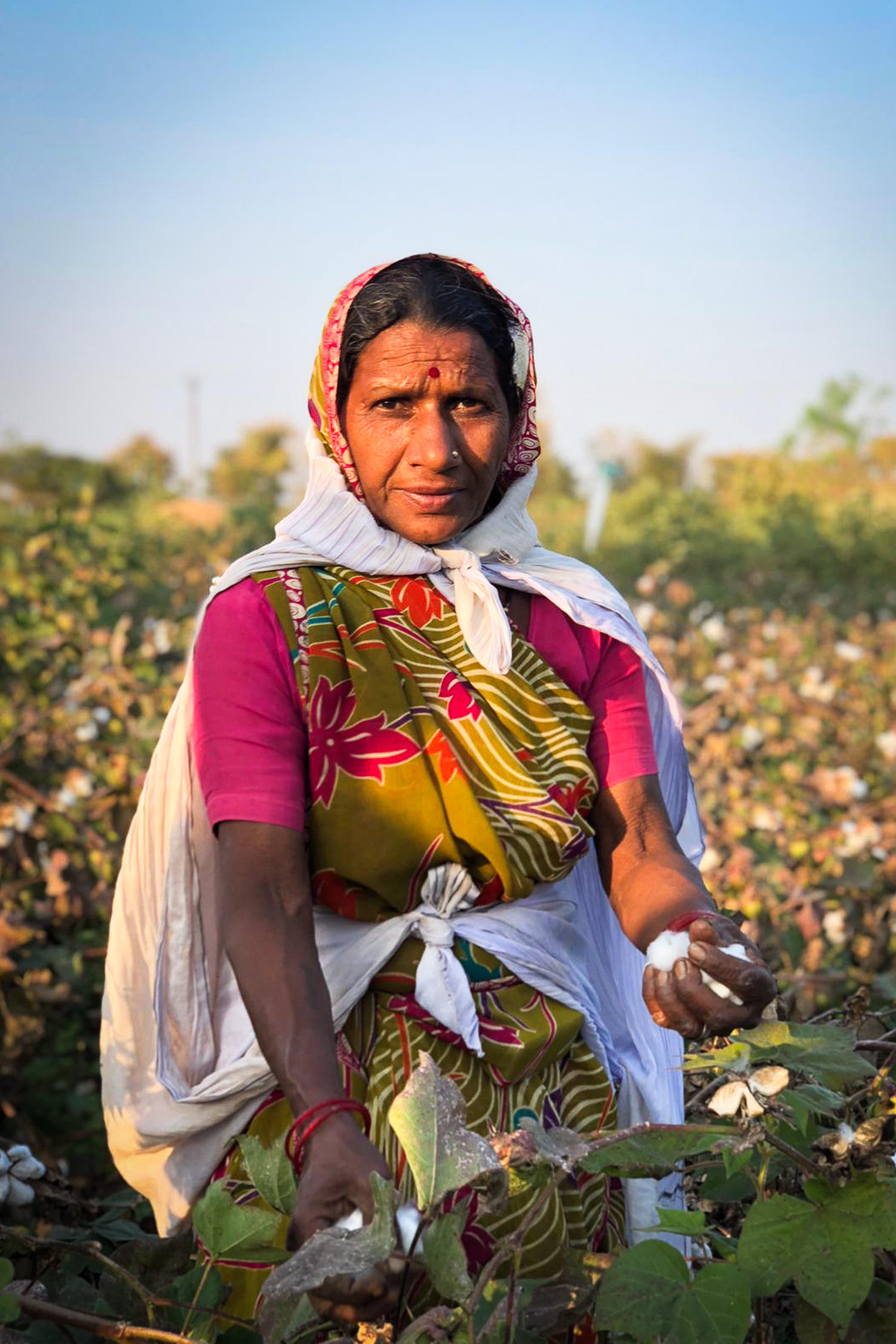
Healthy for people and the environment – right from the start
Avoiding pesticides also has another positive effect: It promotes biodiversity in the growing areas – an important contribution to preserving natural habitats. Last but not least, the exclusion of hazardous chemicals protects the health of the people who work in the cotton fields.
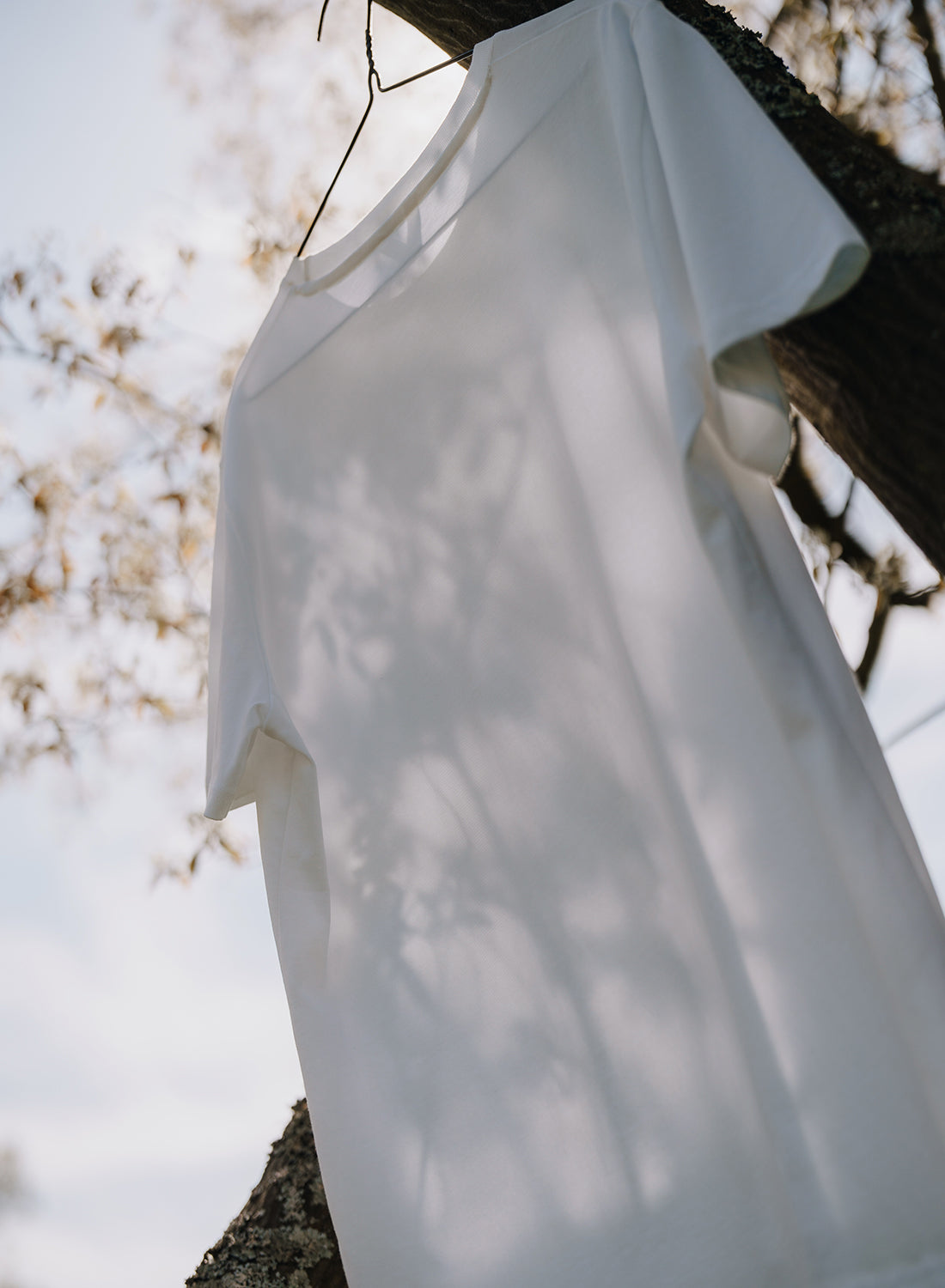
QUALITY THAT SIMPLY FEELS GOOD
Organic cotton products not only have a positive environmental impact, they also feel noticeably better on your skin. Because the cotton is usually hand-picked, the fibers remain undamaged, leaving the fabric feeling soft, supple, and high-quality. At the same time, it's breathable and temperature-regulating: perfect for any season. Another advantage is the pre-washing process, which prevents shrinkage and allows for immediate wear—without any unpleasant odor or stiffness.
Inspired by Cradle to Cradle
At MELA, we think in terms of continuous and closed material cycles when designing our products. We are inspired by the "Cradle to Cradle" concept. This design principle is based on our nature, which does not produce any waste. knows: Products are designed in such a way that they do not harm the environment, but can be added back to it as nutrients or recycled and processed into new, high-quality products.
Our clothing is therefore made from 100% organic cotton – from the fabrics to the sewing thread, embroidery thread, interlinings, and labels. We even remain true to our cradle-to-cradle approach with our socks, using 97% organic cotton and 3% biodegradable elastane.
Care for your values: The right care
Since we avoid adding synthetic fibers like elastane to our garments, it's especially important that you take good care of your favorite MELA pieces. This way, for example, you can prevent cuffs and collars from wearing out. You can find many useful tips for caring for your MELA products in our Care Guide .
MELA podcast
STEP INTO THE FUTURE
Sustainability to listen to: Learn more about organic cotton, sustainable production, and everything about MELA in our podcast STEP INTO THE FUTURE.
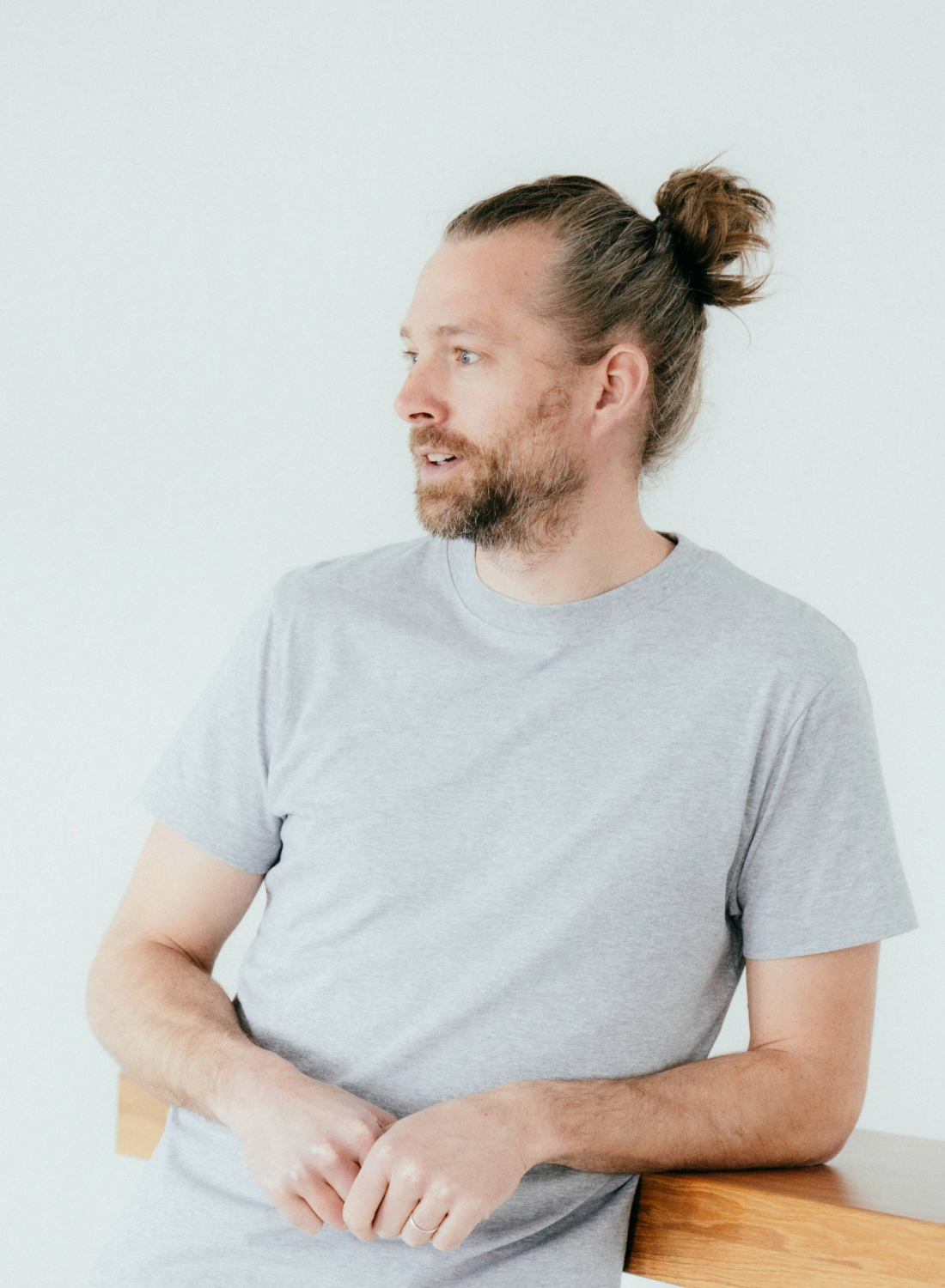
#64 Anniversary episode | Insights from 10 years of MELA
In this special birthday episode, Henning takes us on an exciting journey through a decade of MELA. He shares the most exciting highlights, important milestones and valuable learni...
Read more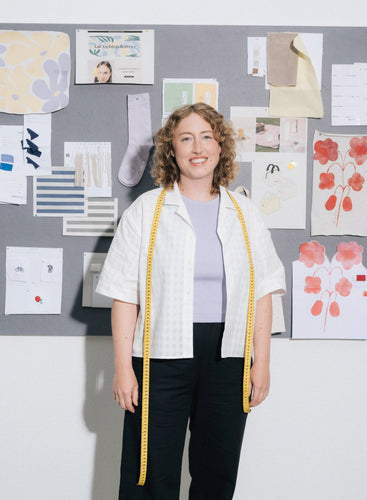
#63 Sock Revolution: Our Super Sustainable Socks
In this episode we take you on a trip to India. Our product managers Rosa and Rabea give you an exclusive look behind the scenes of our unique sock production. Find out what makes ...
Read more
#62 MELA home: Behind the scenes of the new product series
Why MELA home? In this episode, Henning and Cordula talk about the product development process, innovations in sustainability and fair production. Find out what the future holds for MELA...
Read more






